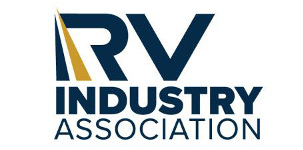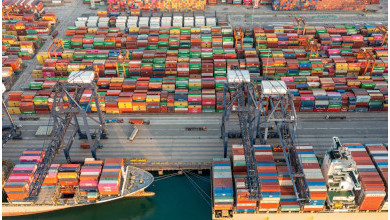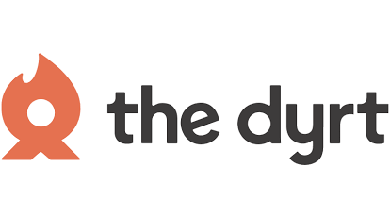RVIA: ‘De Minimis’ Trade Issue Moving on Capitol Hill

The following is a News & Insights report from the RV Industry Association (RVIA).
The RV aftermarket trade – manufacturers, suppliers, distributors and dealers – faces an unprecedented and existential challenge. The RV aftermarket segment has a stated goal to “pursue a great consumer parts & accessories outcome to benefit RVing and supply chain members.” But it cannot accomplish this goal without a robust supply chain focused on consumer satisfaction.
Threatening this goal is a growing issue called “de minimis” wherein certain countries — such as China — are increasingly exploiting a loophole in U.S. custom law to ship RV aftermarket products direct to American consumers duty- and tax-free, facilitated by the explosive growth of eCommerce.
The Problem
America’s RV aftermarket sources both components and finished goods from China. Since 2018, domestic companies have all paid added punitive Section 301 tariffs – mostly an added 25% tariff but in some cases only an extra 7.5% tariff – on top of normal most-favored nation (MFN) duties and other customs fees to bring products into the U.S. market. This is because Section 301 tariffs are not paid by foreign governments, manufacturers or exporters because U.S. law requires that these tariffs be paid by U.S. importers. Undercutting domestic aftermarket suppliers is a statute cited as 19 USC §1321 –a type of informal customs entry more commonly known as Section 321 de minimis entry. The de minimis exception allows foreign entities to ship direct to American consumers from a foreign location on products valued up to $800 duty, tax, customs free, and punitive tariff FREE.
Impact: This loophole hits the RV aftermarket especially hard. Overseas suppliers, with assistance from the proliferation of eCommerce marketplaces, exploit this unfair advantage and hurt the market. These competitors enjoy an immediate 25% to 30% advantage in tariffs alone. Many RV businesses are probably affected — whether they realize it or not.
Consumer Satisfaction: These products may have no history, no vetting, no insurance, no OEM presence or no relevant safety certifications — but have a pretty picture and a low price. To the average consumer, these products look like real OE replacements or upgrades. When the product arrives and is not the stated size or malfunctions quickly, the RVer has no recourse after the sale, as there is no local retailer (dealer parts store) or supplier to contact. To be clear: we are not advocating for or against importation. We are pushing for responsible, accountable sources of supply. This “backdooring” is not good for the future of RVing.
The Solution
The RV Industry Association’s Government Affairs team is on the case. During the recent RV’s Move America Week in Washington D.C., members visited dozens of elected officials in Congress. They implored Representatives and Senators to support pending legislation in the House, HR 7979 – End China’s De Minimis Abuse Act, introduced by Congressman Greg Murphy and passed by the House Ways and Means Committee in April. House Speaker Mike Johnson signaled early this week he intends to bring this issue to the House floor for consideration in the weeks ahead. The bill would terminate de minimis benefits for Chinese-origin products subject to Section 301 tariffs. This change alone will immediately eliminate de minimis for more than half of all de minimis shipments coming into the country today.
Did you know that Customs and Border Protection (CBP) estimates it processes nearly four million (yes you read that correctly) packages a day? This is a worthy first step in gaining much-needed relief for the RV industry.
Rest assured that while we recognize this legislation is merely just a starting point for tackling the issue long-term, Chairman Jason Smith of the Ways and Means Committee and many other members from both parties and chambers have indicated that they intend to advance more aggressive measures in the future.
Bipartisan signals coming from the administration and Congress this week support this notion. In addition to Speaker Johnson’s announced plans for the issue, Homeland Security Secretary Alejandro Mayorkas called on Congress to provide a legislative fix to restrict de minimis and the “exploitation of that exception” during a speech at the Center for Strategic and International Studies. He later said, “The ‘de minimis’ exception is built on the false premise that low value means low risk.” Later in the discussion, he said that de minimis “is one area where we hope to make some advances.”
In response to this growing momentum, on Wednesday, July 10, RV Industry Association Director of Federal Affairs Samantha Rocci held meetings with several Senate offices joined by Ron Sorini and Megan Costello of Sorini, Samet & Associates. Congressional staff reiterated the growing appetite for advancing de minimis reform this year, explaining that there is a bipartisan consensus that the de minimis exception has ballooned out of control and are moving towards building consensus on legislation. Senate Finance Committee trade staff also relayed they too intend to soon introduce a de minimis reform proposal that goes beyond what is actively moving through the House.
All in all – de minimis reform is hot, but without direct engagement, members cannot know the threat we face.
Call to Action
There are multiple ways you can be more informed and active on this issue:
- The RV Industry Association will be holding an informational webinar on this issue in the near future. Please watch for that announcement.
- Attend the RV Aftermarket Conference from Aug. 12-15 to hear an update on the state of this initiative in Congress. The conference will be held at the Caribe Royale Orlando and more information can be found here.
- Contact Rocci, srocci@rvia.org, director of federal affairs, to get involved in this effort. Rocci can help you contact your members of Congress and effectively share your story —the best way to ensure that members understand the severity of this issue.
Given the building momentum on the Hill, August will be a crucial month to directly engage with members and ensure they understand how important action is for the aftermarket sector.



